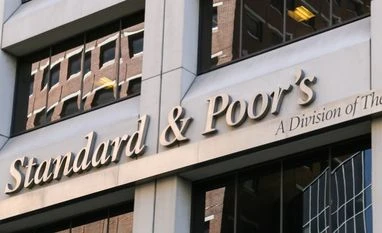S&P revises outlook on B'desh to negative; affirms 'BB-' long term ratings
Bangladesh's external vulnerabilities are rising, marked by sustained pressure on its foreign exchange reserves despite a material decline in the country's current account deficit
)
Standard and Poor's headquarter in New York
Listen to This Article
Standard and Poor’s (S&P) has revised its outlook on Bangladesh from “stable’ to “negative”, considering the risk that the country’s external liquidity position could deteriorate in 12 months.
The global rating agency, however, affirmed 'BB-' long-term and 'B' short-term sovereign credit ratings for the country.
Bangladesh's external vulnerabilities are rising, marked by sustained pressure on its foreign exchange reserves despite a material decline in the country's current account deficit.
External financial assets have fallen markedly over the past year despite the country introducing a sweeping International Monetary Fund (IMF) reform and funding programme.
The ratings reflect the country's modest per capita income and limited fiscal flexibility owing to a combination of low revenue-generation capacity and high interest burden. Evolving administrative and institutional settings represent additional rating constraints, said the agency in a statement.
Also Read
“We weigh these factors against consistently high economic growth and an external position that's supported by substantive engagement with bilateral and multilateral development partners, large remittances from overseas Bangladeshi workers, and a globally competitive garment sector,” it said.
Bangladesh, in January 2023, agreed to a 42-month extended credit facility, an extended funding facility (ECF/EFF), and a resilience and sustainability facility with the International Monetary Fund (IMF). Total funding under the three facilities will amount to $4.7 billion over the course of 42 months from the date of the agreement. The ECF/EFF programs will emphasise reforms to rebuild Bangladesh's diminished external buffers, and to strengthen the management of its public finances.
The IMF views the programme as an important anchor for stabilising Bangladesh's external position, which has deteriorated over the past 18 months and continues to experience net financial outflows.
More trade and financial flows will be necessary for Bangladesh's external settings to stabilise over the next 12 months. Real gross domestic product (GDP) growth is expected to remain modestly lower than Bangladesh's high long-term benchmark as the economy continues to seek equilibrium, said the rating agency.
More From This Section
Topics : Standard and Poor’s Bangladesh economy finance
Don't miss the most important news and views of the day. Get them on our Telegram channel
First Published: Jul 25 2023 | 5:01 PM IST
